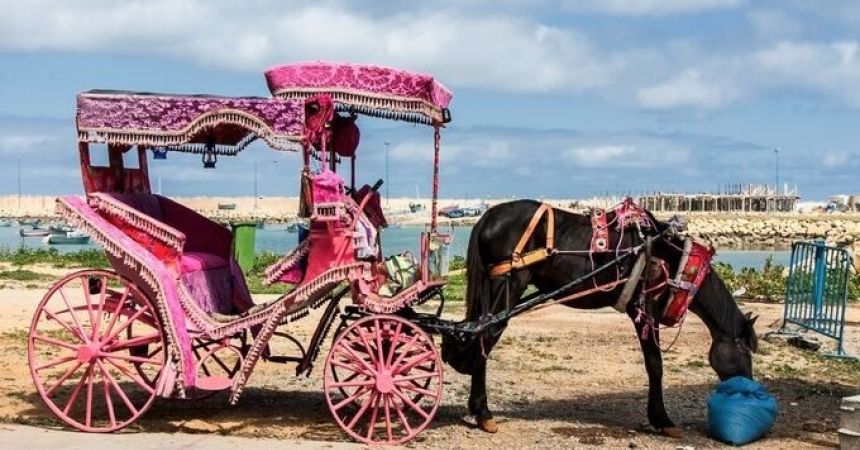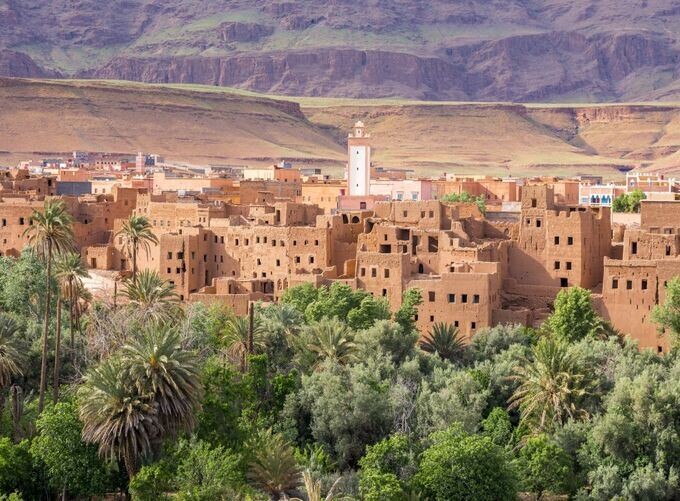
Important Travel Tips for Morocco Visitors
What to Know Before Visiting Morocco
Morocco is a mesmerizing blend of ancient culture, stunning landscapes, and vibrant cities. From the bustling souks of Marrakech to the tranquil Sahara Desert, Morocco offers an array of experiences for every traveler. Whether you’re planning your first trip or returning for another adventure, here’s everything you need to know when traveling to Morocco.
Visa and Entry Requirements
Visa Requirements
Citizens of many countries, including the United States, Canada, the United Kingdom, and most EU nations, do not require a visa for stays up to 90 days. However, it's essential to check the latest visa requirements before your trip, as these can change.
Passport Validity
Ensure your passport is valid for at least six months beyond your planned departure date from Morocco.
Entry Procedures
Upon arrival, you'll need to fill out an entry form. Be prepared to show proof of accommodation and a return or onward ticket.
Best Time to Visit Morocco
Spring (March to May)
Spring is one of the best times to visit Morocco, with pleasant temperatures and blooming landscapes. It’s ideal for exploring cities, hiking in the Atlas Mountains, and enjoying the coast.
Autumn (September to November)
Autumn offers similar conditions to spring, making it another excellent time to visit. The weather is mild, and there are fewer tourists compared to the summer months.
Summer (June to August)
While summer can be scorching, especially in inland areas and the desert, the coastal cities like Casablanca and Essaouira offer cooler and more comfortable climates.
Winter (December to February)
Winter is the best time for desert excursions, with cooler temperatures making it more bearable. Coastal areas remain mild, but mountainous regions can be quite cold, with snow in the High Atlas Mountains.
Cultural Etiquette
Dress Code
Morocco is a conservative country, and dressing modestly is appreciated, especially in rural areas and religious sites. Women should cover their shoulders and knees. In touristy areas, the dress code is more relaxed, but respectful attire is still recommended.
Greetings
Moroccans are known for their hospitality. Handshakes are common among men, while greetings between men and women may vary. It’s polite to use the right hand for eating and giving or receiving items.
Tipping
Tipping is customary in Morocco. In restaurants, a tip of 10-15% is standard. For guides, drivers, and hotel staff, small tips are appreciated.
Language
Arabic and Berber
Morocco’s official languages are Arabic and Berber. Modern Standard Arabic is used in formal settings, while Moroccan Arabic (Darija) is spoken in daily life. Berber languages are prevalent in rural and mountainous areas.
French
French is widely spoken, especially in business, government, and tourism. Many Moroccans are bilingual, so knowing some French phrases can be helpful.
English
English is increasingly spoken in tourist areas and among younger generations. However, learning a few basic phrases in Arabic or French will enhance your travel experience.
Currency and Payments
Moroccan Dirham (MAD)
The currency in Morocco is the Moroccan Dirham. ATMs are widely available in cities and towns, and credit cards are accepted in most hotels, restaurants, and larger shops.
Cash
In smaller towns, markets, and rural areas, cash is essential. It’s advisable to carry small denominations, as change can be an issue.
Transportation
Getting Around Cities
Cities like Marrakech, Fes, and Casablanca have reliable public transportation, including buses and taxis. In Marrakech, the medina is best explored on foot.
Trains
Morocco’s train network, operated by ONCF, connects major cities like Casablanca, Rabat, Fes, and Marrakech. The trains are comfortable, affordable, and efficient.
Buses
CTM and Supratours are the main bus companies offering services between cities and towns. Buses are a good option for reaching destinations not served by trains.
Car Rentals
Renting a car gives you the freedom to explore at your own pace. However, driving in cities can be challenging due to traffic and different driving habits.
Desert Tours
For trips to the Sahara Desert, it’s best to book a guided tour in Marrakech. These tours typically include transportation, accommodation in desert camps, and meals.
Safety and Health
Safety
Morocco is generally safe for tourists, but it’s essential to remain vigilant, especially in crowded areas and markets. Petty crimes, such as pickpocketing and scams, can occur. Always keep your belongings secure and be cautious when accepting offers from strangers.
Health Precautions
- Vaccinations: Check with your healthcare provider for recommended vaccinations before traveling.
- Water: Tap water is not recommended for drinking. Stick to bottled or filtered water.
- Food Safety: Enjoy Morocco’s street food, but choose stalls that are busy and have a high turnover of customers.
Travel Insurance
Having comprehensive travel insurance that covers health, accidents, and theft is highly recommended.

Food and Drink
Traditional Moroccan Cuisine
Moroccan cuisine is rich and flavorful, featuring dishes like tagine, couscous, pastilla, and harira. Street food, such as brochettes (meat skewers) and msemen (flatbread), is a must-try.
Mint Tea
Known as “Moroccan whiskey,” mint tea is a staple and is often served as a gesture of hospitality. It's typically very sweet and enjoyed throughout the day.
Alcohol
While Morocco is a Muslim country, alcohol is available in many hotels, restaurants, and bars. However, it’s not as widely consumed as in Western countries.
Must-See Destinations in Morocco
Marrakech
Known as the Red City, Marrakech is famous for its bustling souks, historic palaces, and vibrant squares like Jemaa el-Fnaa. Don't miss the beautiful Majorelle Garden and the Koutoubia Mosque.
Fes
Fes is home to one of the world’s largest and oldest medinas. Explore the labyrinthine streets, historic madrasas, and the famous tanneries.
Chefchaouen
The Blue City is renowned for its blue-painted streets and buildings, offering a serene and picturesque escape in the Rif Mountains.
Sahara Desert
A trip to Morocco isn’t complete without a visit to the Sahara Desert. Experience a camel trek, spend a night in a desert camp, and witness breathtaking sunrises and sunsets.
Essaouira
This coastal town is known for its relaxed atmosphere, historic medina, and beautiful beaches. It’s a great spot for windsurfing and enjoying fresh seafood.
Atlas Mountains
The Atlas Mountains offer stunning landscapes, traditional Berber villages, and excellent trekking opportunities. The Todra Gorge and Dades Valley are particularly noteworthy.
Shopping and Souvenirs in Morocco
Souks
Moroccan markets, or souks, are a shopper’s paradise. From spices and textiles to pottery and jewelry, you’ll find an array of unique items. Remember to haggle, as it’s part of the shopping experience.
Traditional Crafts
Look for handwoven rugs, leather goods, metalwork, and ceramics. Each region has its specialties, so explore different areas for diverse finds.
Argan Oil
Argan oil, produced in the southwestern region of Morocco, is highly valued for its cosmetic and culinary uses. Ensure you buy from reputable sources to get genuine products.
Festivals and Events in Morocco
Ramadan
During the holy month of Ramadan, Muslims fast from sunrise to sunset. While many restaurants remain open for tourists, it's respectful to avoid eating, drinking, or smoking in public during daylight hours.
Eid al-Fitr and Eid al-Adha
These major Islamic holidays are celebrated with prayers, feasts, and community events. If visiting during these times, you’ll experience the rich cultural traditions of Morocco.
Marrakech International Film Festival
Held annually in December, this festival attracts filmmakers and celebrities from around the world. It’s a great opportunity to enjoy international cinema in a beautiful setting.
Fes Festival of World Sacred Music
This unique festival in June features performances by artists from various cultural and religious backgrounds, promoting peace and understanding through music.
Practical Tips for Morocco
Electrical Outlets
Morocco uses Type C and E electrical outlets with a standard voltage of 220V. It’s advisable to carry a universal adapter.
Internet and SIM Cards
Wi-Fi is available in most hotels, cafes, and restaurants. For reliable internet access on the go, consider purchasing a local SIM card from providers like Maroc Telecom, Orange, or Inwi.
Photography
Morocco is incredibly photogenic, but be mindful of local customs. Always ask for permission before photographing people, especially in rural areas and religious sites.
Language Apps
Language translation apps can be useful for communicating in Arabic or French. They can help with basic phrases and navigating local services.
Respect Local Customs
Morocco is a country with deep-rooted traditions and customs. Respect local practices, dress modestly, and be considerate in religious or conservative areas.
Important Things to Know About Morocco
Traveling to Morocco is a journey filled with wonder, discovery, and rich cultural experiences. By understanding the local customs, preparing for the practicalities, and embracing the country’s unique charm, you'll ensure a memorable and rewarding trip. Whether you're exploring ancient medinas, trekking through the Atlas Mountains, or enjoying a sunset over the Sahara, Morocco promises an adventure unlike any other. Safe travels!



